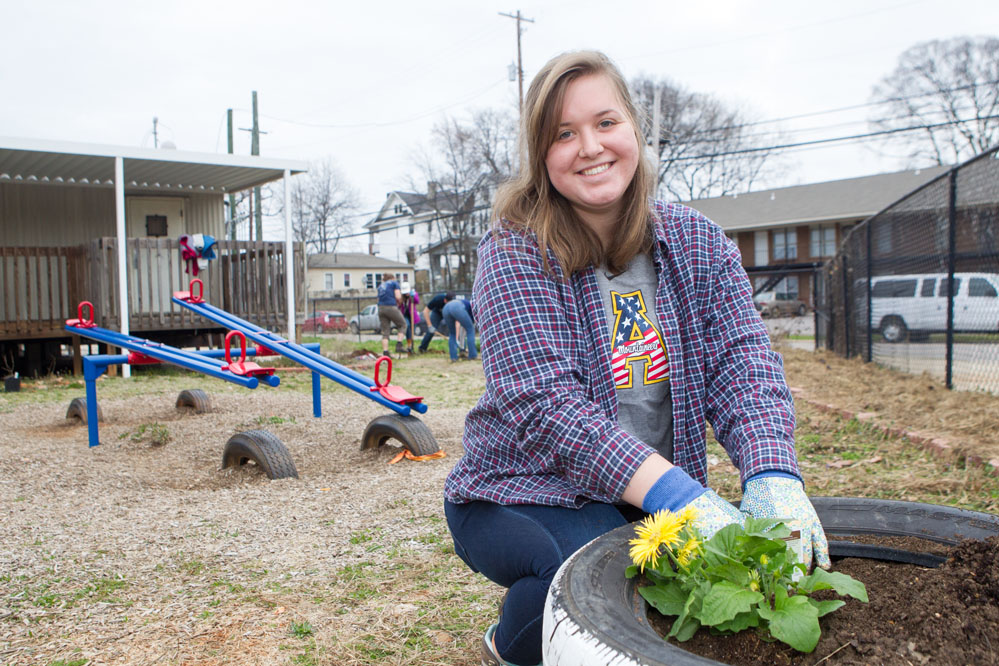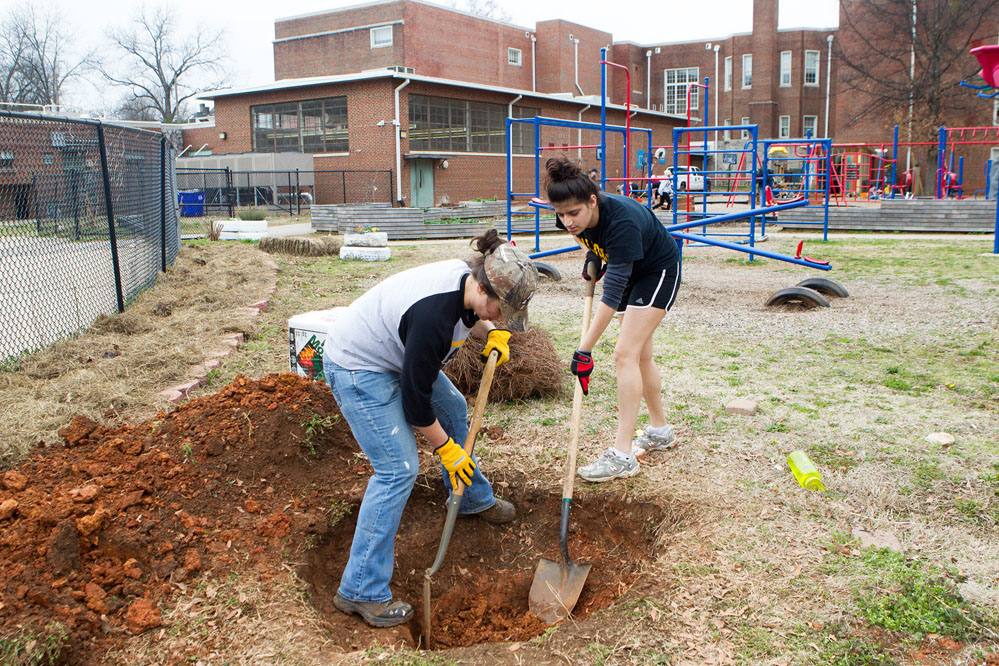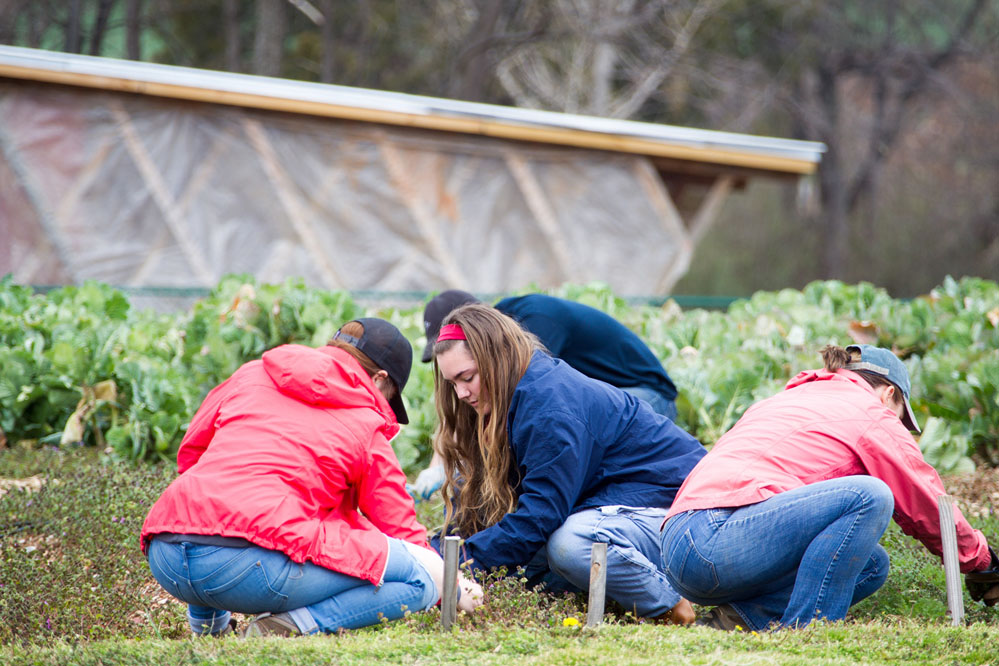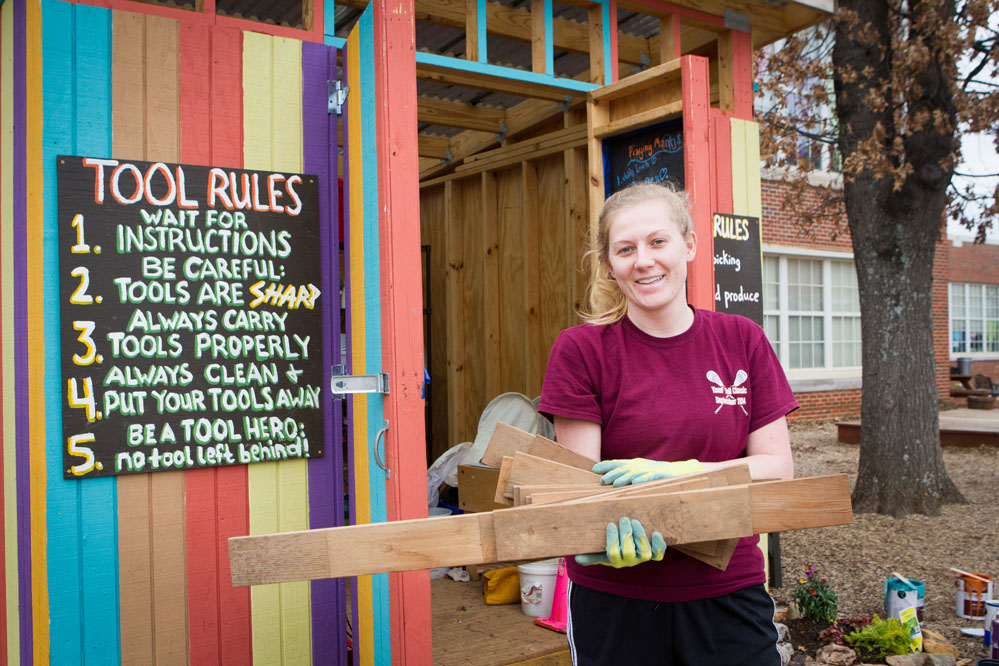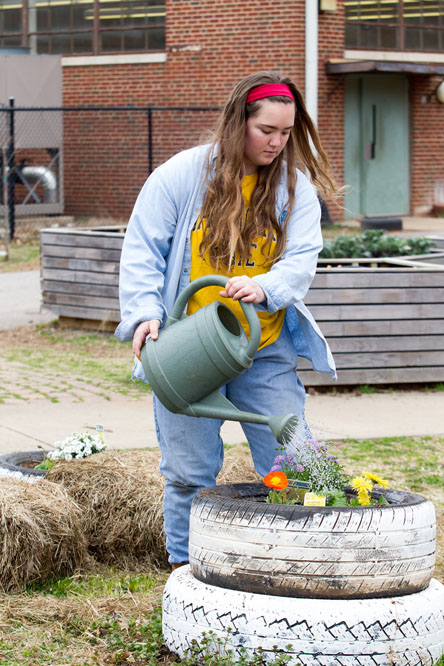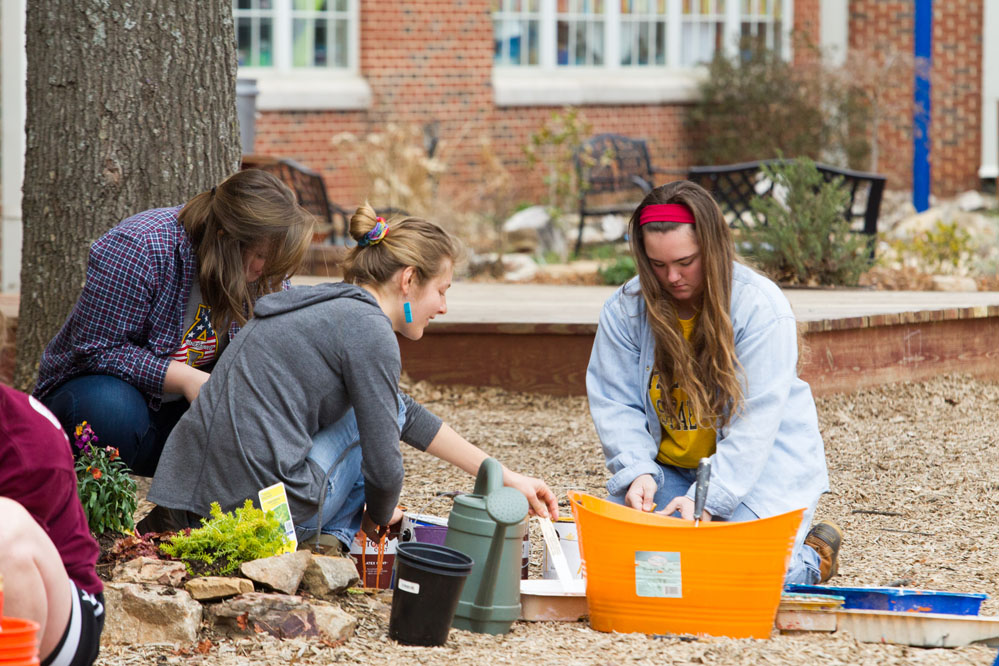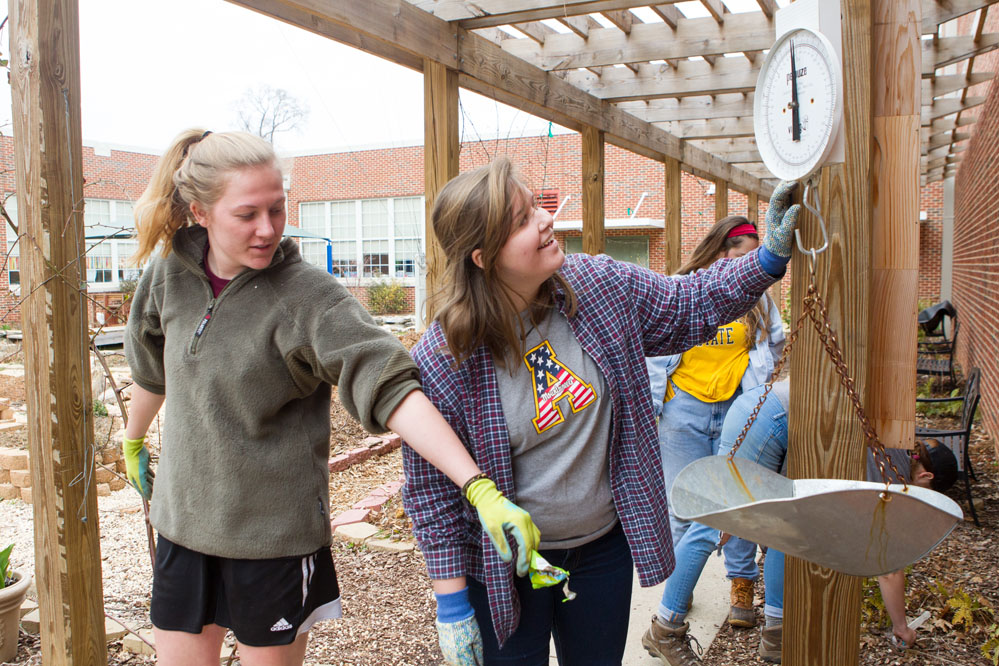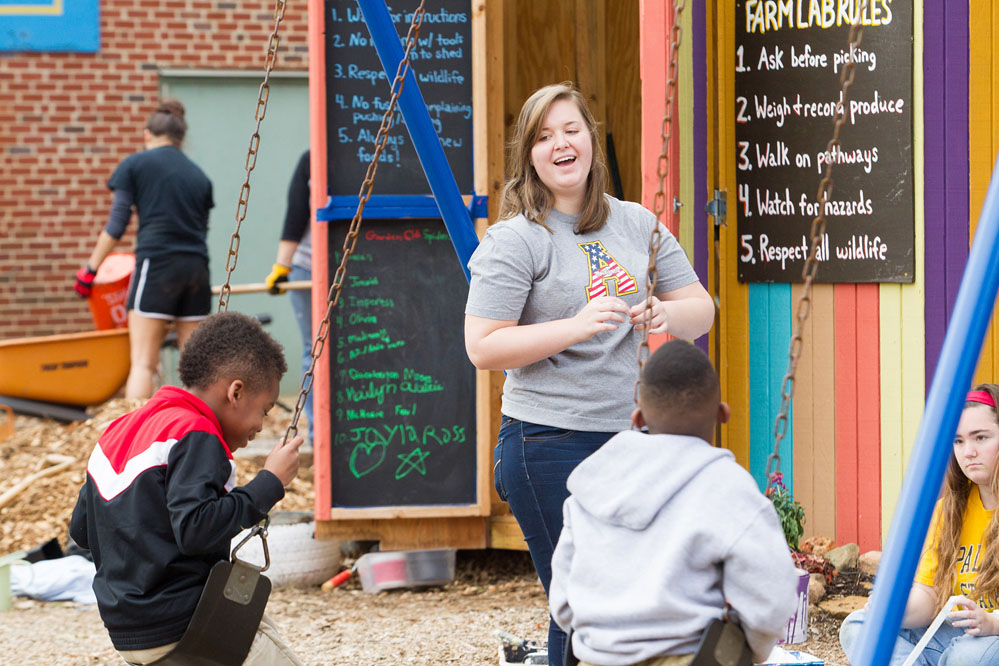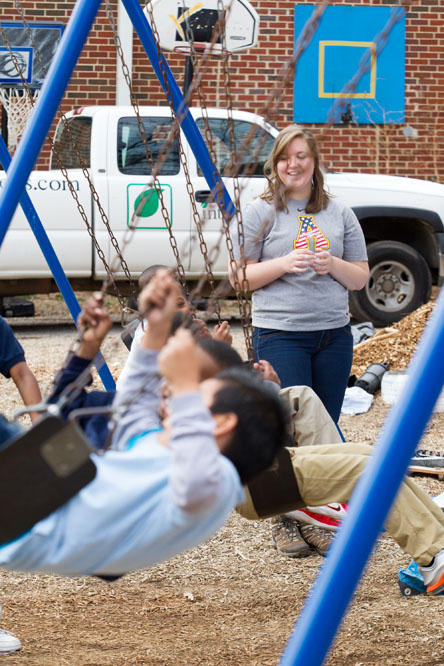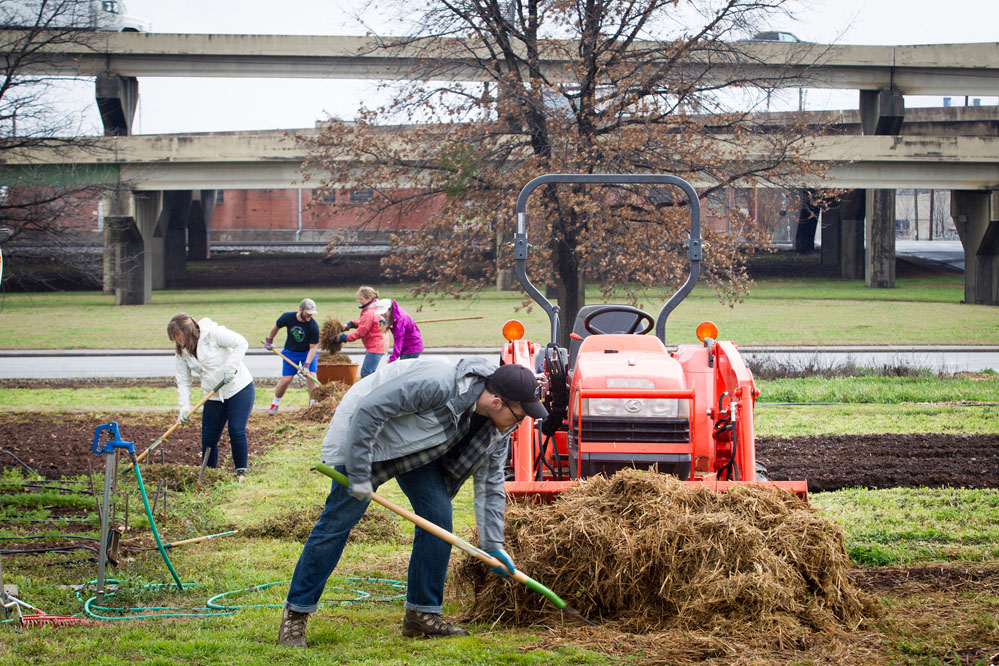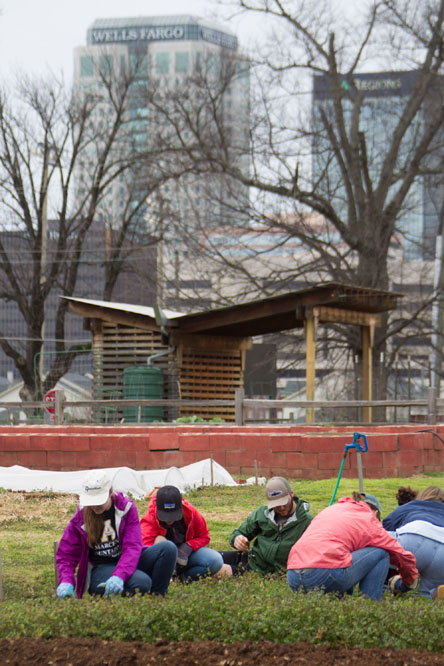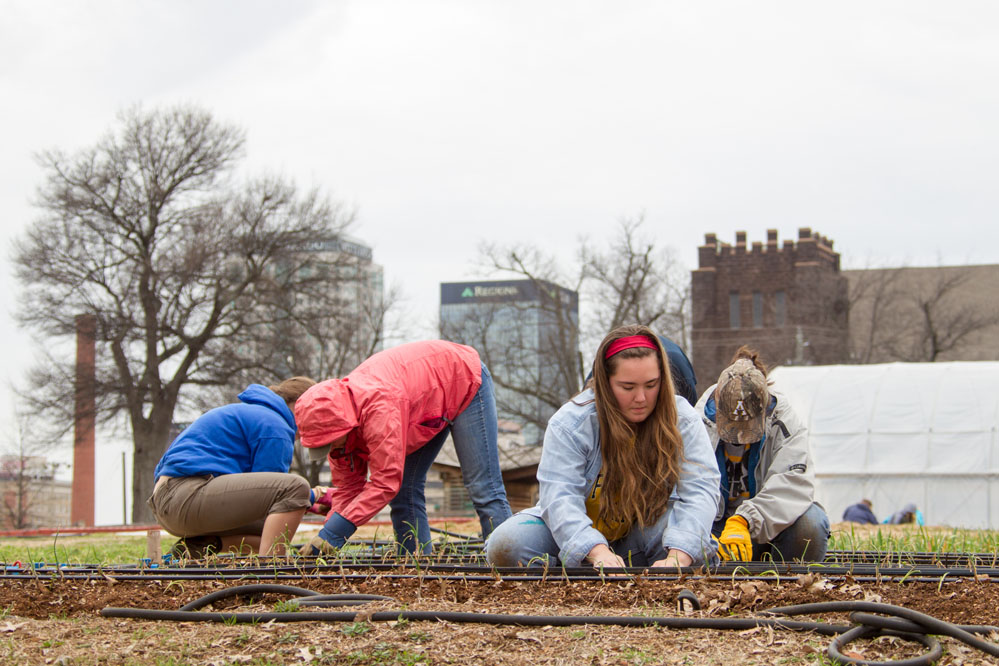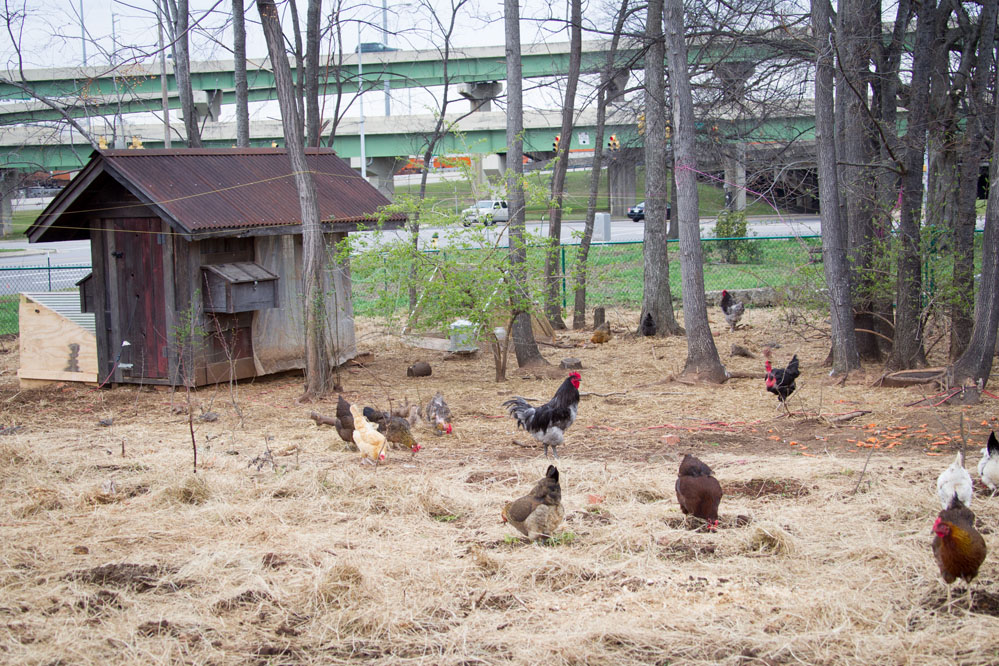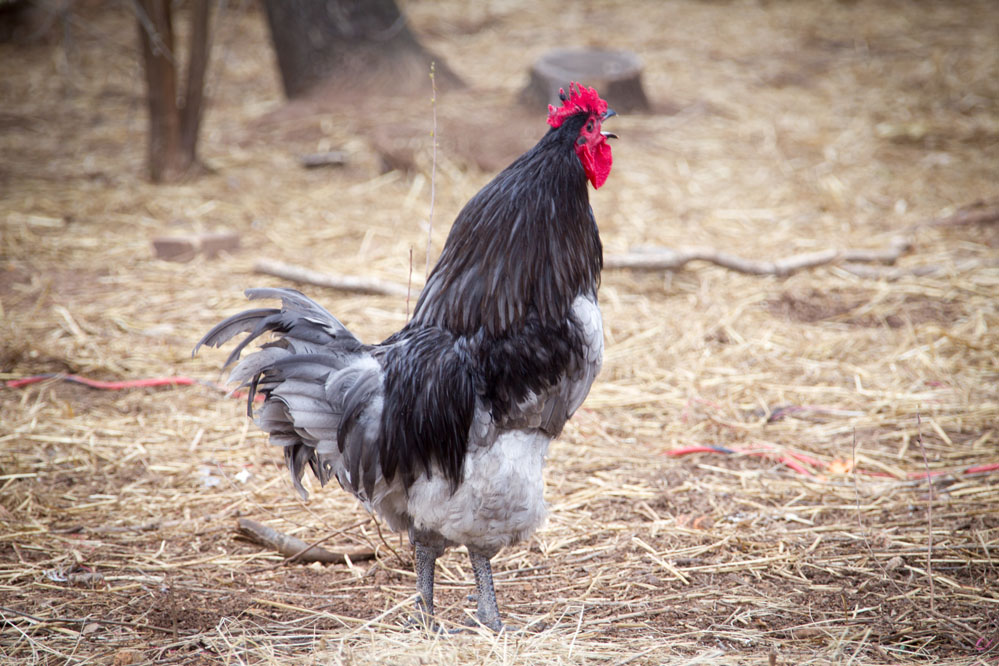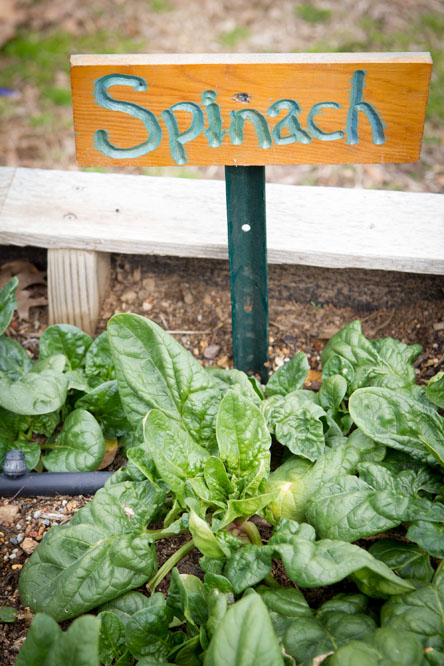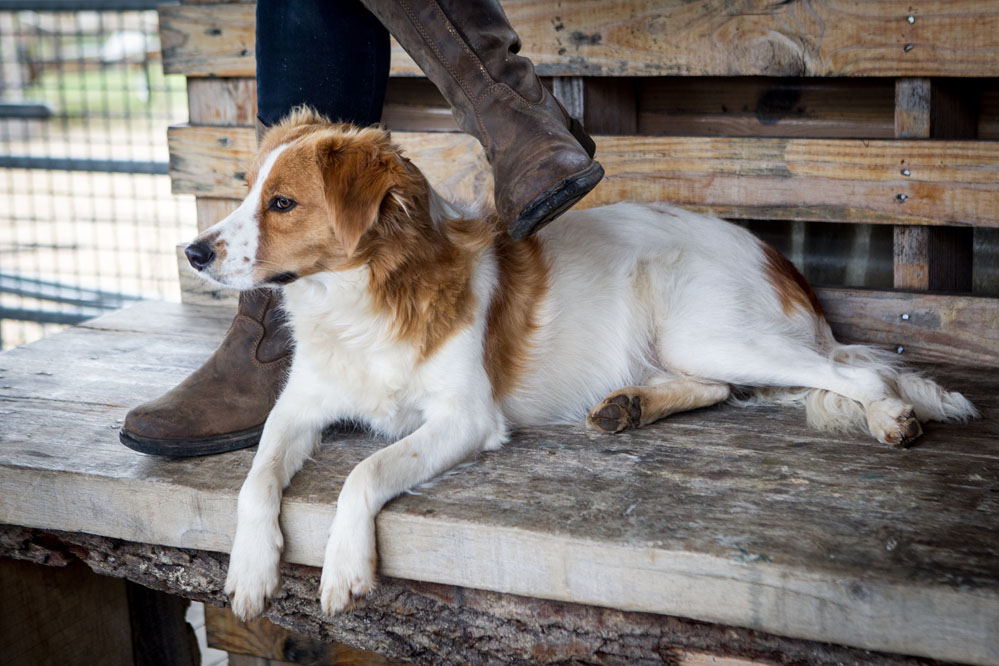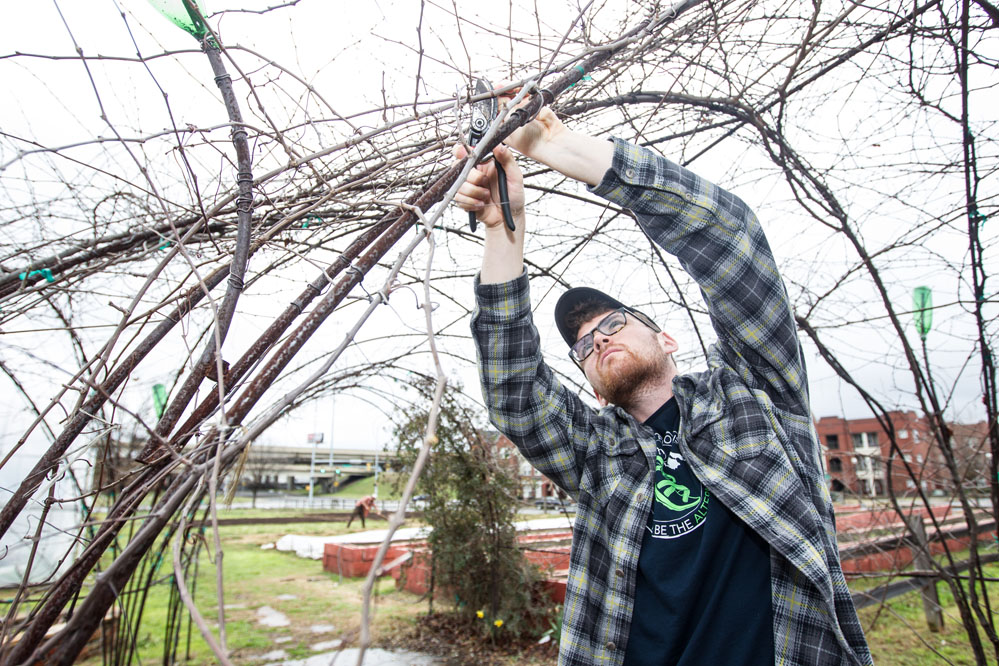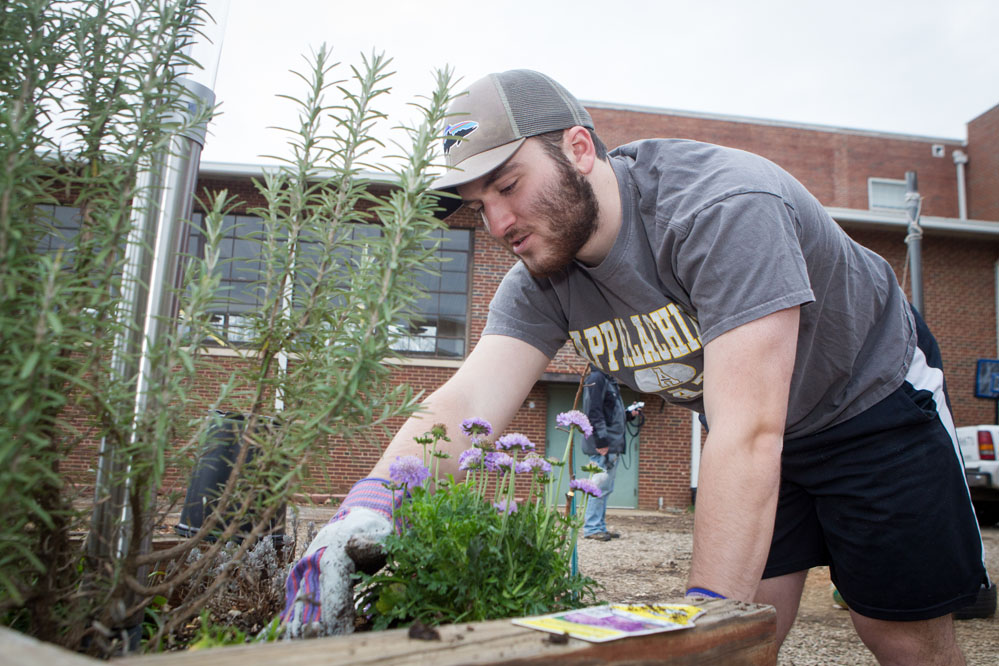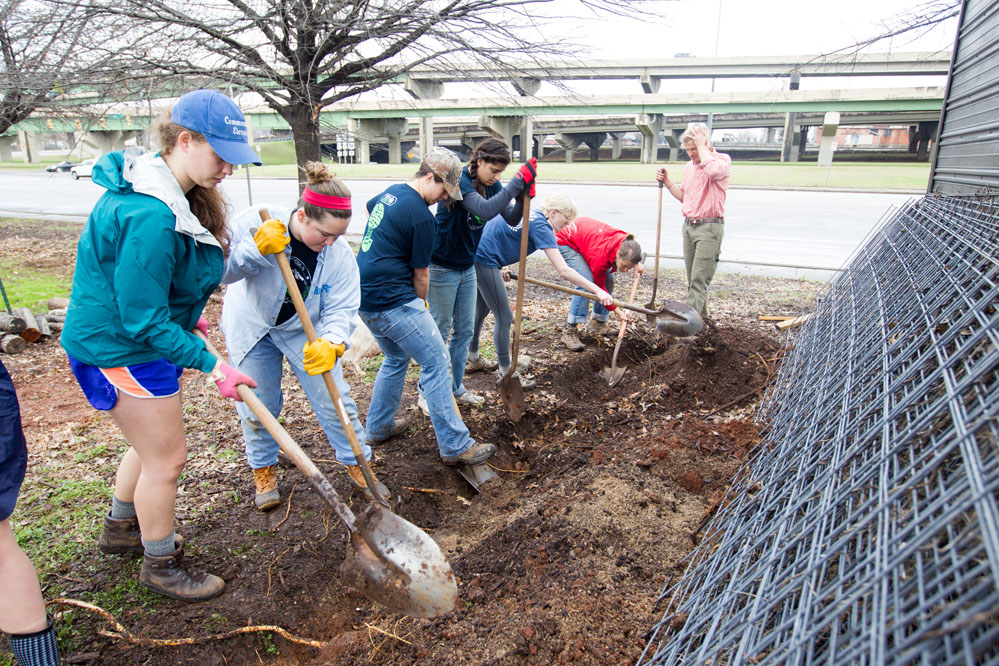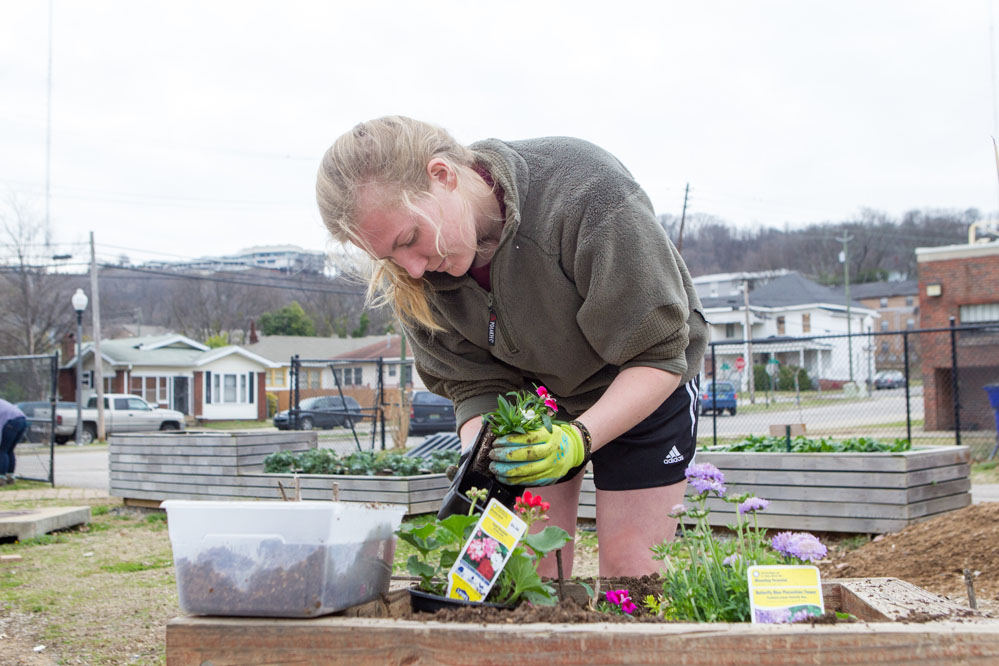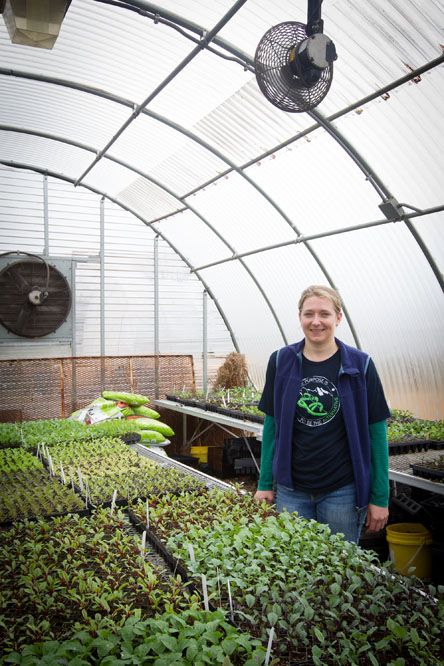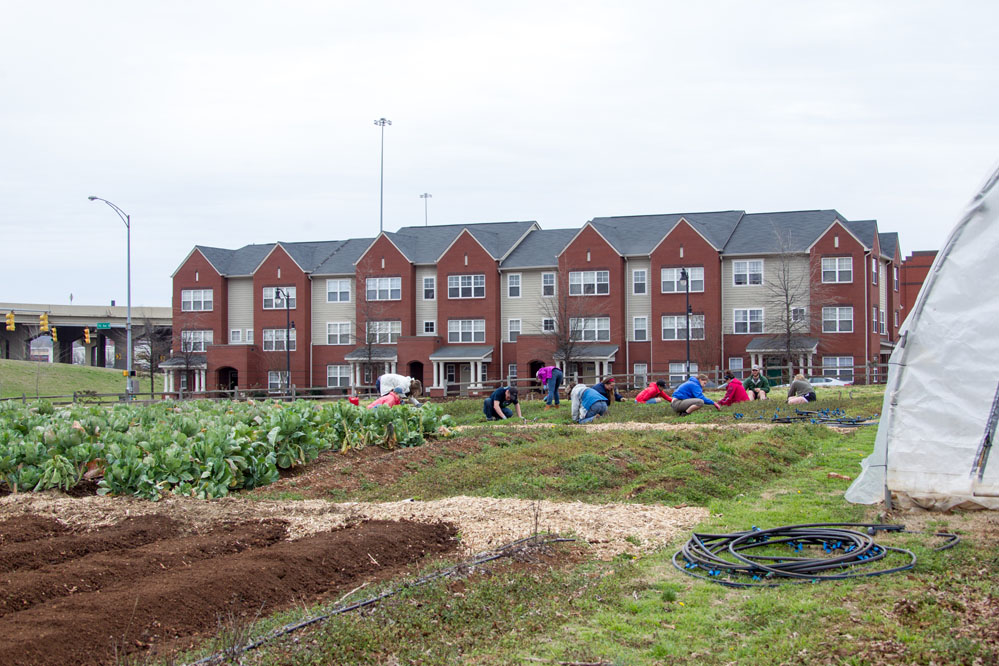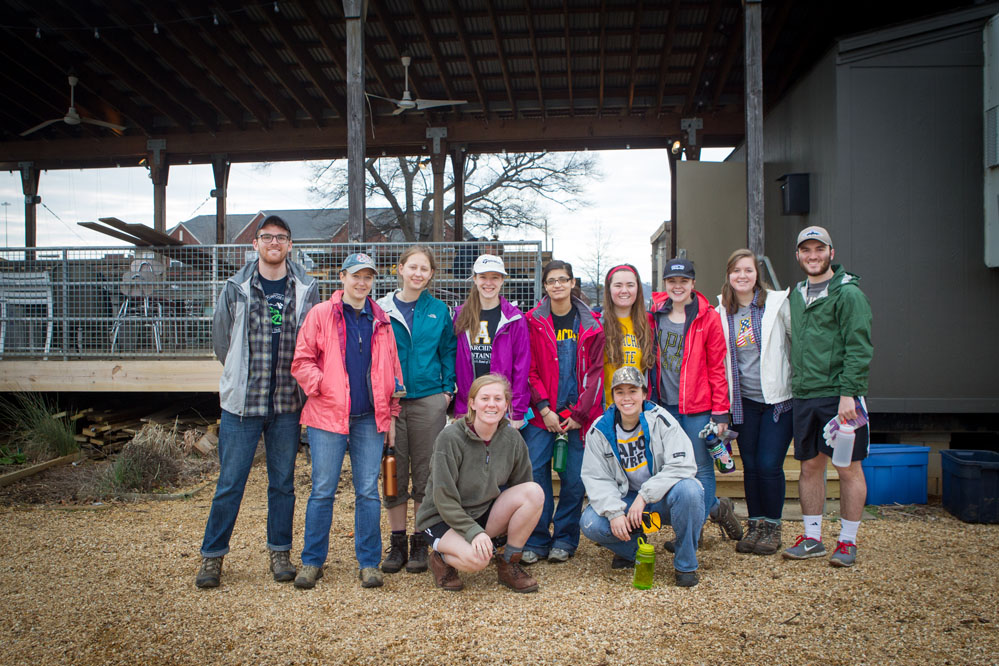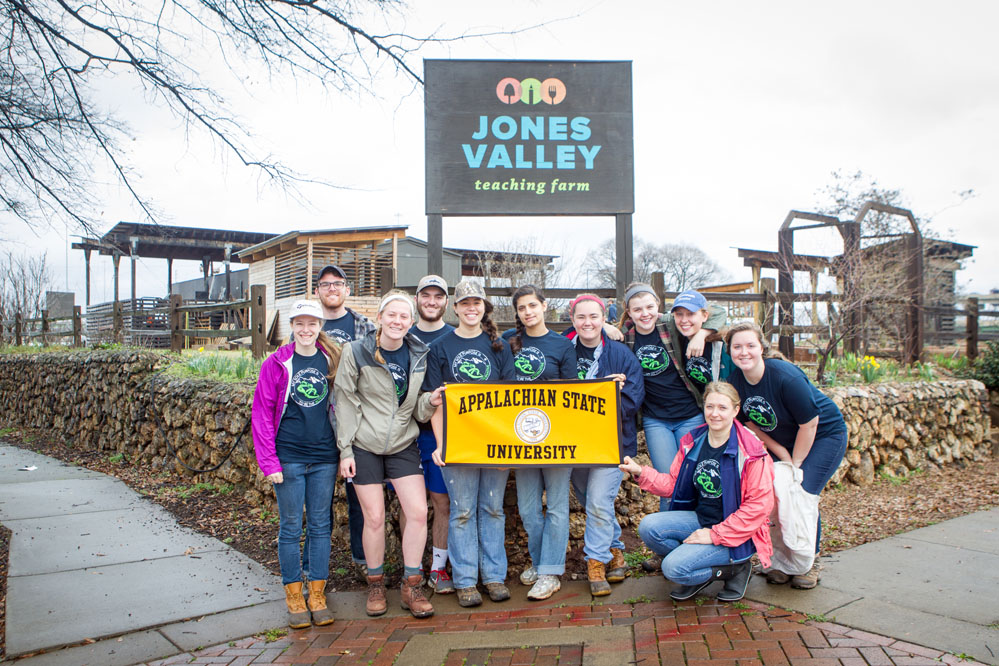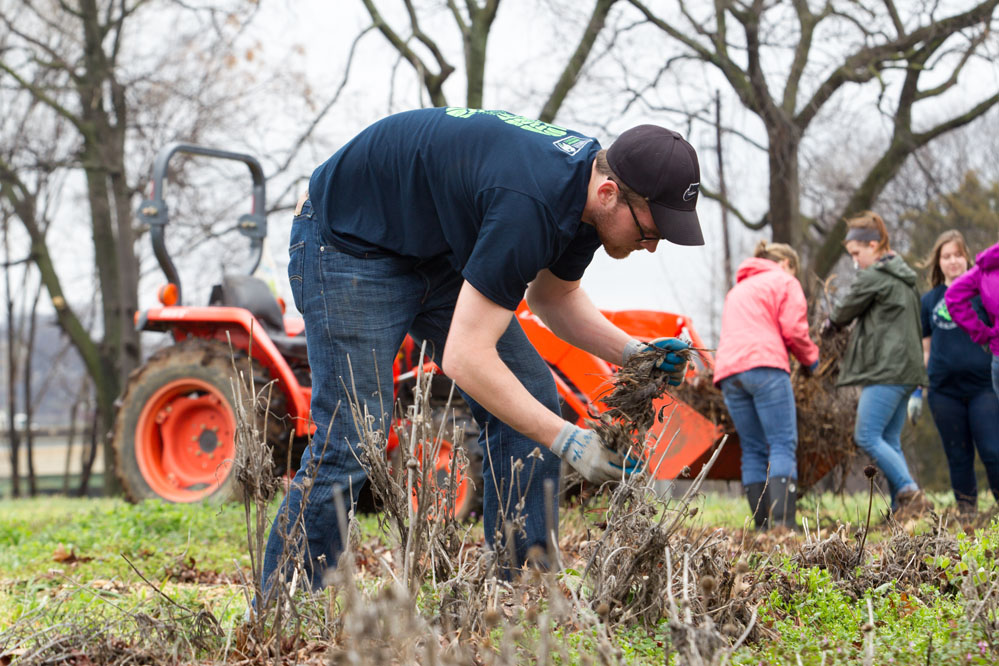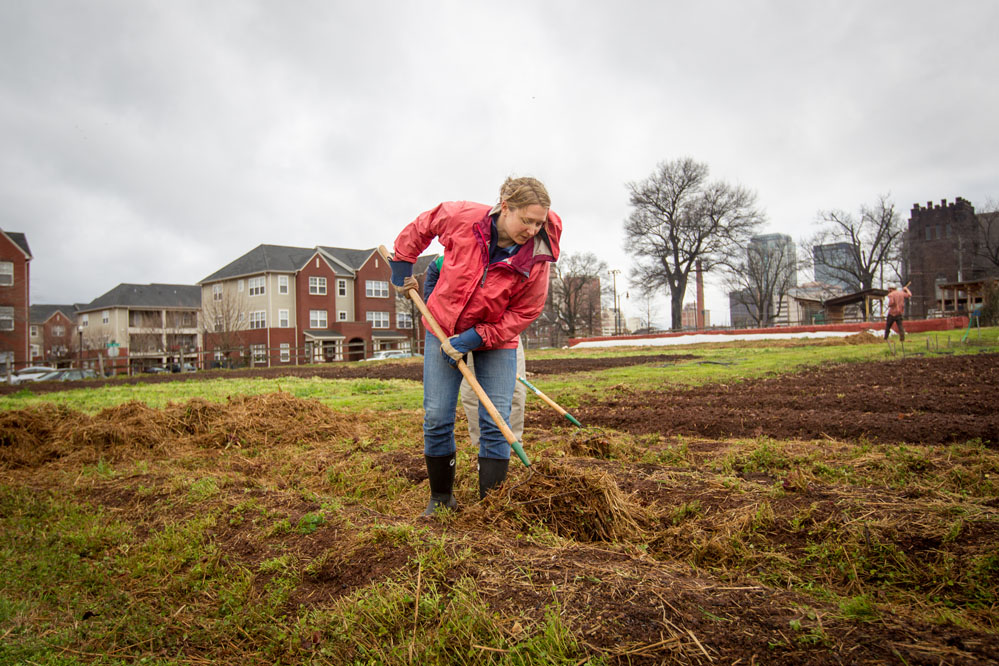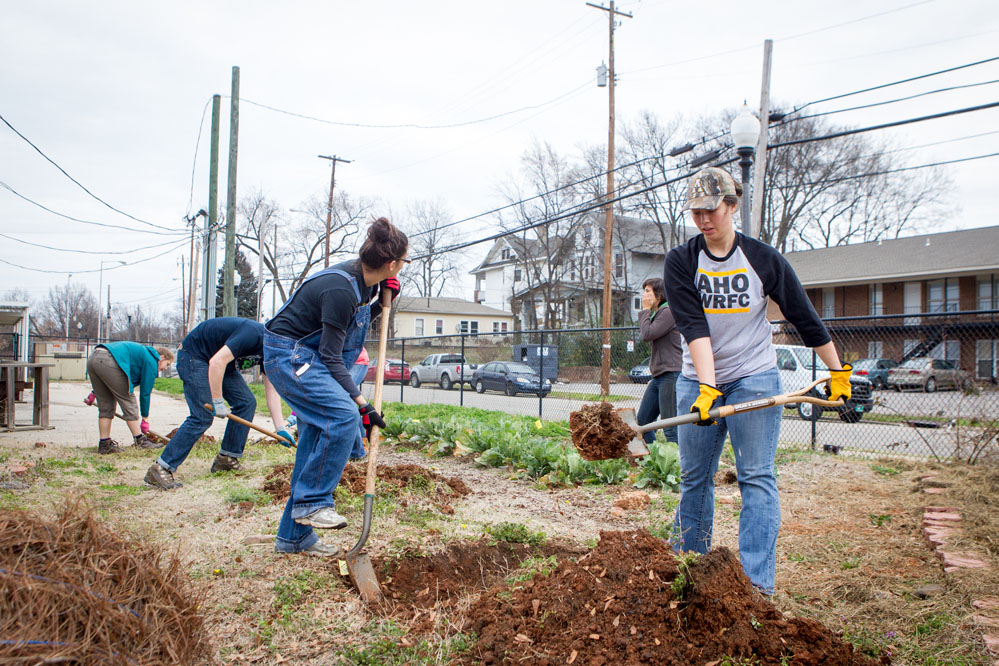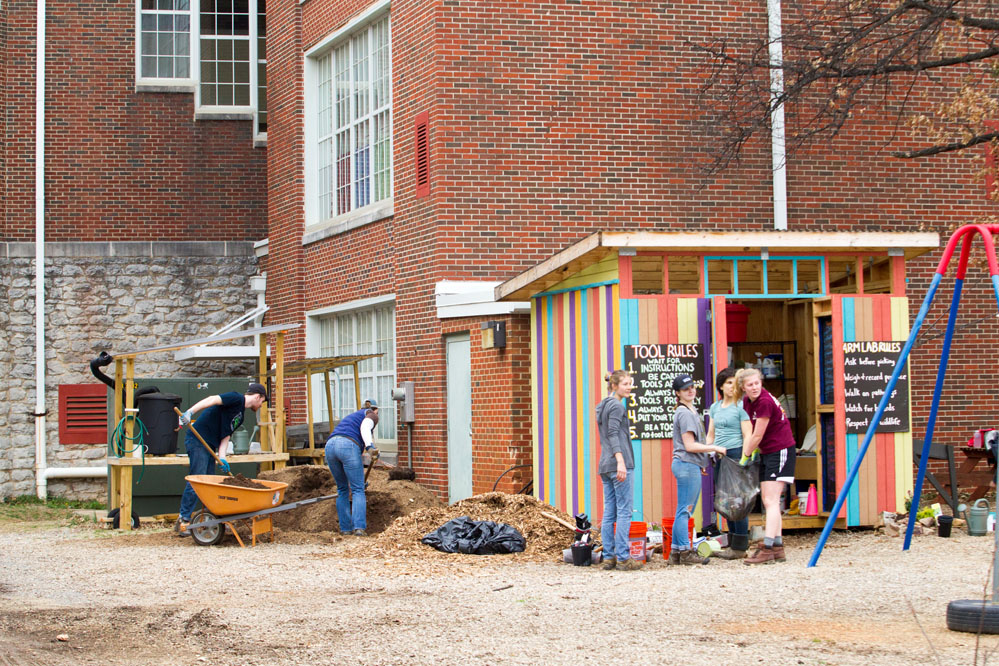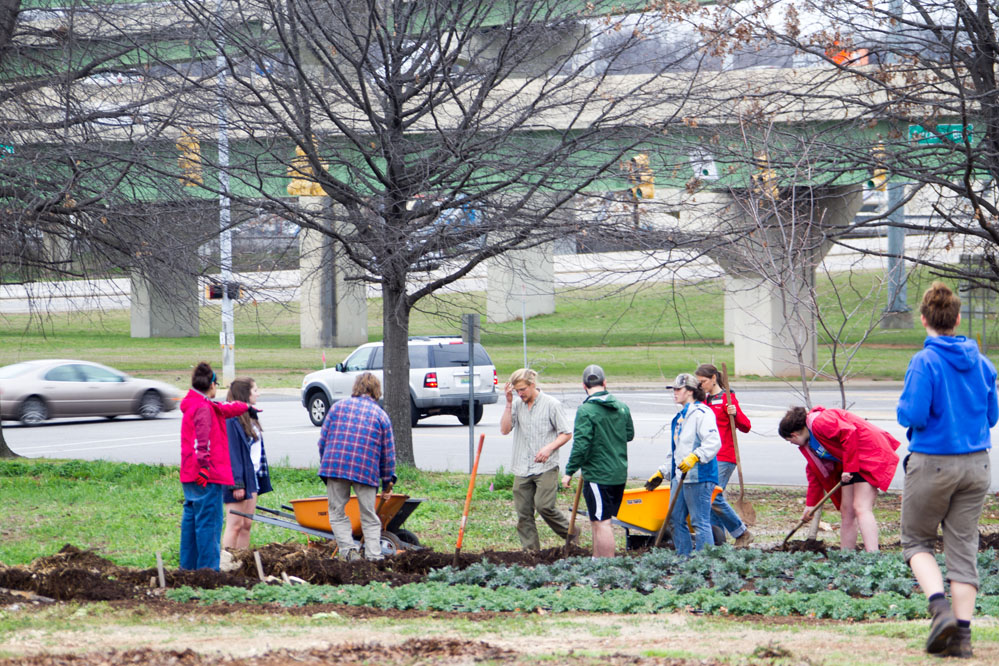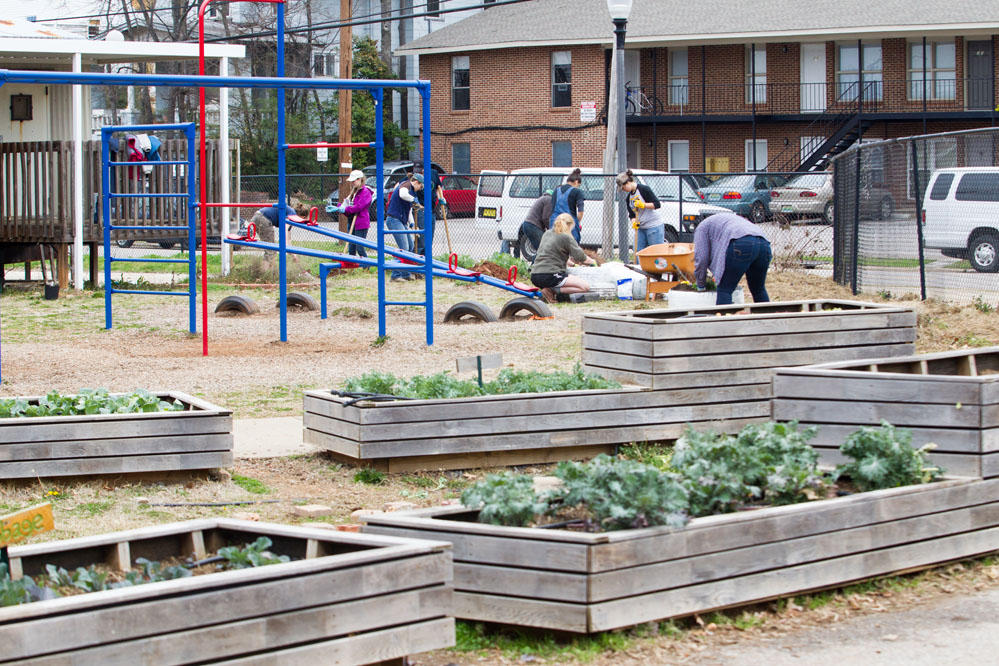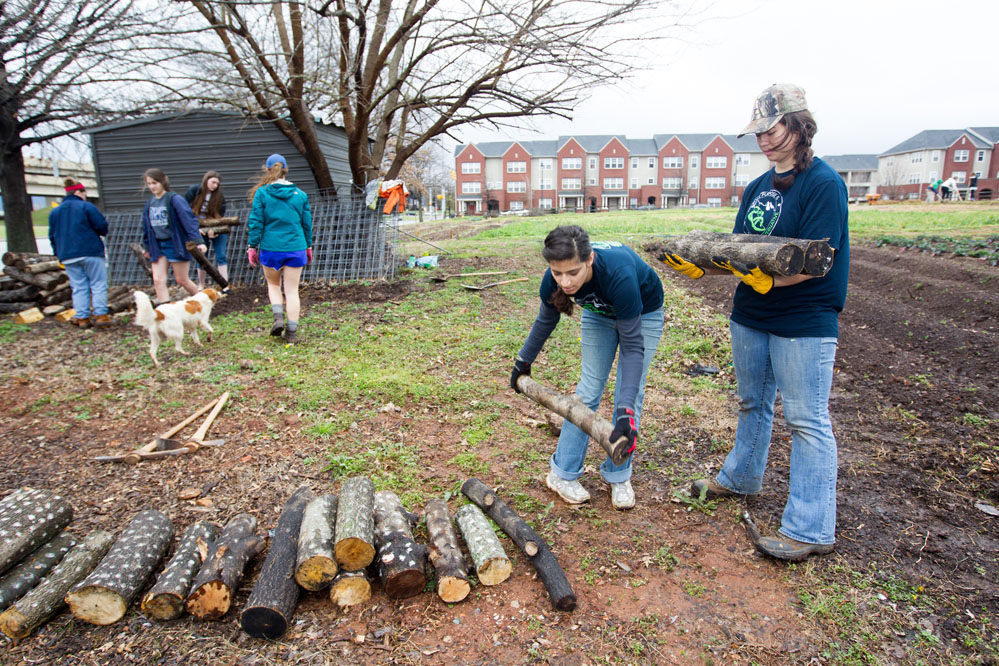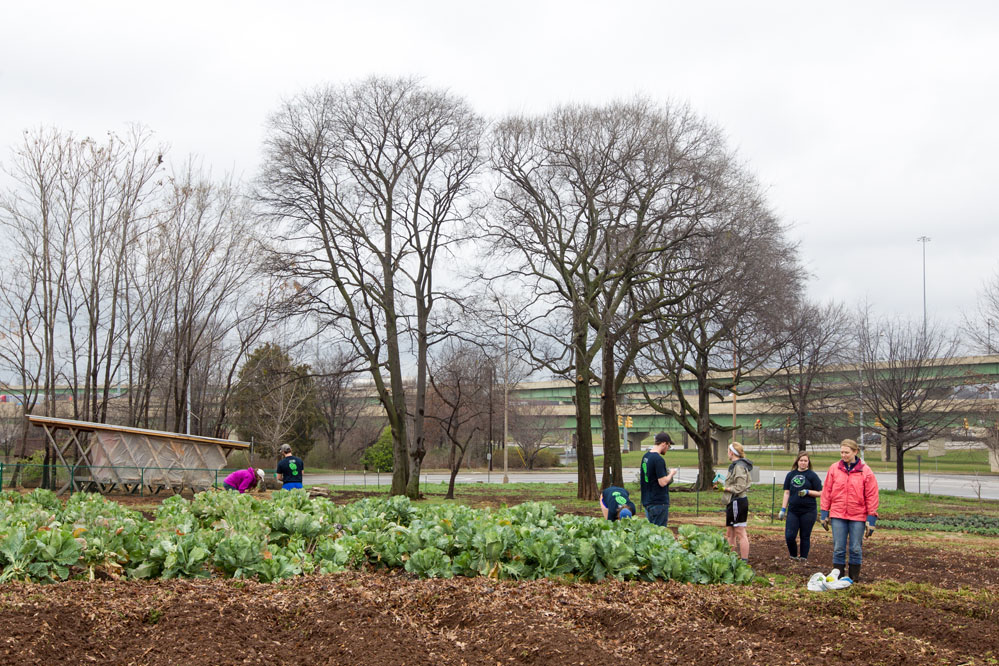Forget beach parties. Appalachian State University students find something more meaningful as an alternative to the traditional spring break.
Appalachian’s Alternative Service Experience (ASE) program sent out 25 domestic and international service trips over spring break, March 9–13, to explore a variety of social issues while working with communities across the globe. This year, nearly 300 students embarked on journeys that took them as far north as New York City and as far south as Costa Rica.
As a part of the "alternative" experience, students in the programs consumed a vegetarian diet and monitored the programs' carbon footprints in an effort to have as little of an environmental impact as possible. Once all of the service trips for the year are complete, the total amount of accumulated carbon is calculated and then offset during a fall retreat consisting of the next year’s Peer Leaders.
Join Appalachian student Laurie Pope as she accompanies an ASE group to Birmingham, Alabama, where students volunteer at the Jones Valley Teaching Farm.
The various social justice issues that students worked with this year included, but were not limited to:
- animal rights
- environmental conservation
- poverty
- homelessness
“This exposure to communities and the social issues those communities face highlights the need for community involvement,” said Heather Jo Mashburn, assistant director of community service for Alternative Service Experience. “They (ASEs) oftentimes push students to become involved in their local communities upon return.”
Each spring, groups of Appalachian State University students choose to forgo the typical vacation most imagine when they hear the term "Spring Break" to do service projects around the nation. These trips, which all have a focus on sustainability, social justice and the environment, are known as Alternative Service Experiences (ASE).
The programs are led by two undergraduate peer leaders and one faculty or staff learning partner. Although there is a full-time Appalachian employee actively involved with each ASE, the planning of the entire program falls on the peer leaders. It is their responsibility to create a meaningful and educational experience for the participants so that everyone on the program is able to take what they learned on the ASE, and apply it to their everyday lives at Appalachian.
ASEs are organized by the university’s Appalachian and the Community Together (ACT) Office. In addition to the long-term programs, ACT and ASE have recently created ASE Local, which consists of daylong service opportunities that focus on local communities and issues. There were 35 programs offered during the 2014-2015 academic year that totaled more than 9,840 working hours dedicated to ASE.
“ASE has given me the opportunity to interact with many different communities not only around the country but also around the world,” said senior Melissa Lee, peer leader and president of ACT’s impACT Team. “I have learned so much about different cultures and communities that are different from my own, and it has really given me a different perspective on the world in which we live.”
This past spring break, Lee completed her sixth and final ASE program in Granada, Nicaragua.
About the Alternative Service Experience Program
The Alternative Service Experience Program immerses students in a service experience in local, domestic and international communities. Its trips are created and led by trained student peer leaders and involve direct service to a community, purposeful reflection and relationship building with fellow students. All focus on a particular social issue such as homelessness, the environment or youth. The program was honored in 2017 with being ranked 10th in the nation for the number of alternative break programs it offered in 2015-16 by Break Away, a national nonprofit organization that supports the development of quality alternative break programs. Learn more at https://ase.appstate.edu.
About Appalachian State University
As a premier public institution, Appalachian State University prepares students to lead purposeful lives. App State is one of 17 campuses in the University of North Carolina System, with a national reputation for innovative teaching and opening access to a high-quality, cost-effective education. The university enrolls more than 21,000 students, has a low student-to-faculty ratio and offers more than 150 undergraduate and 80 graduate majors at its Boone and Hickory campuses and through App State Online. Learn more at https://www.appstate.edu.
What do you think?
Share your feedback on this story.

